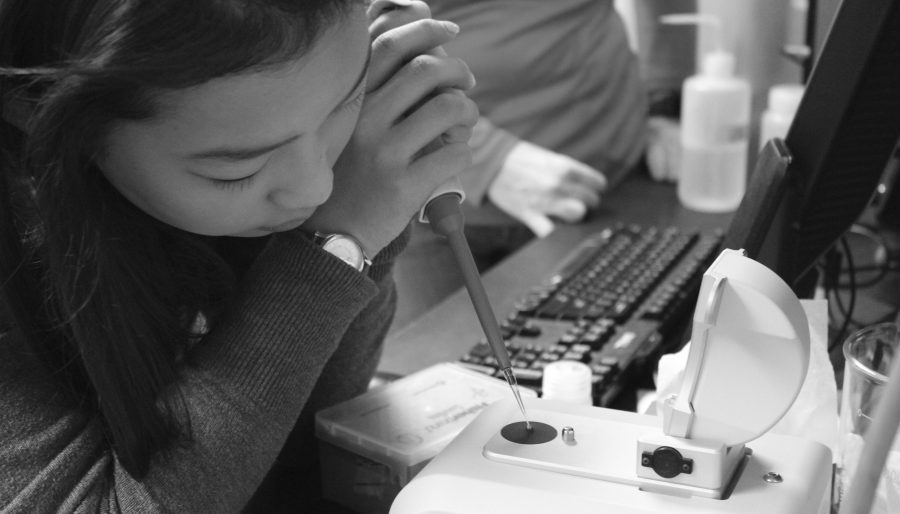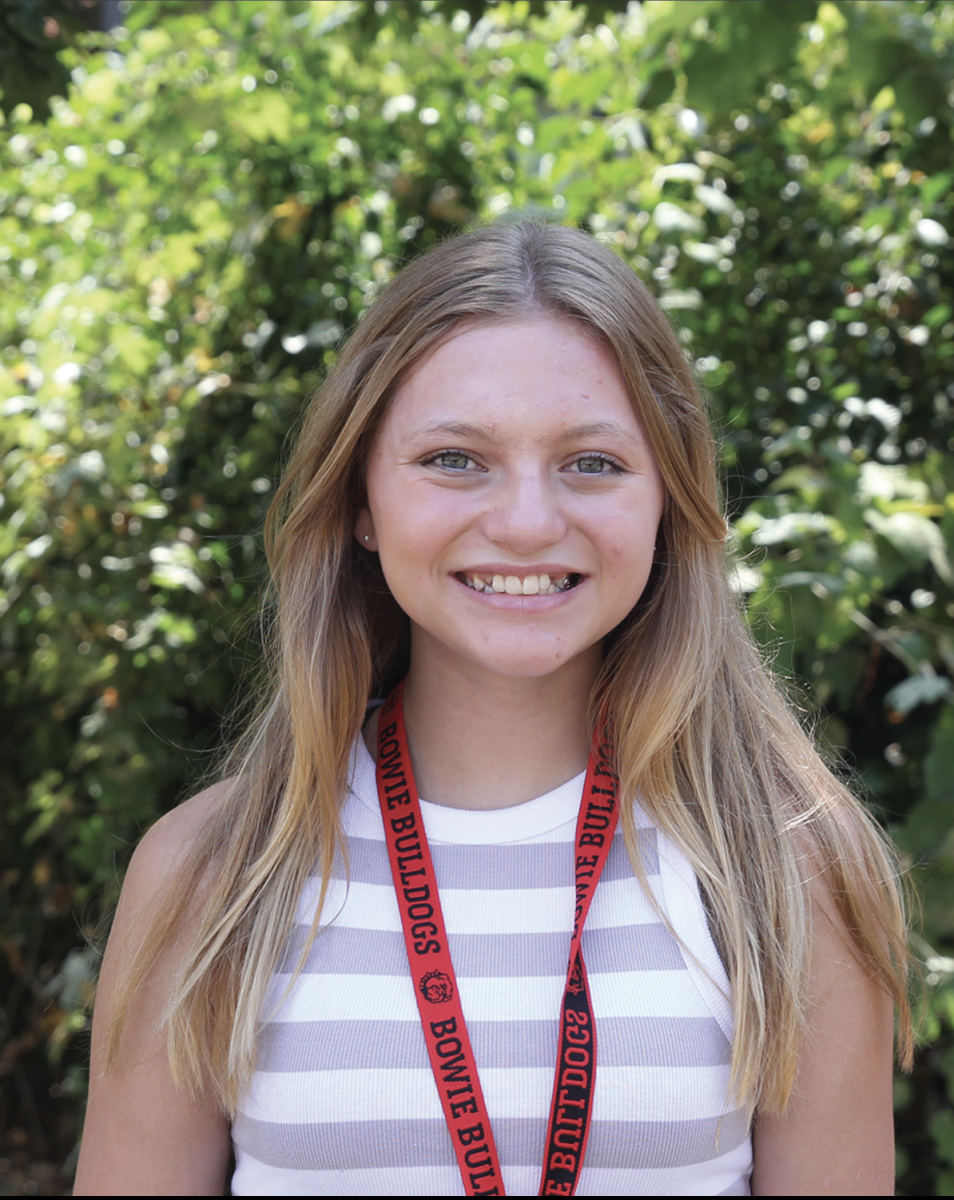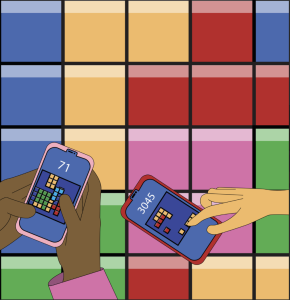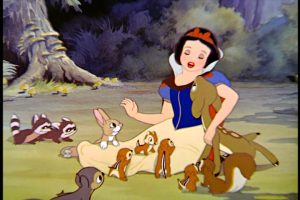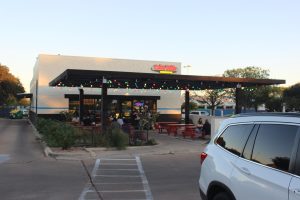Science classes research with Nanodrop spectrophotometer
February 14, 2017
Students are putting in work all year on a college level research project, which most will only experience after high school.
The Scientific Research and Design class works in conjunction with the freshmen research class at UT. Their goal is to study the functions of proteins they’re working with. The process is done by cloning the protein’s DNA and putting tags on the proteins, and then the tags will be used to study the living cells.
“Every group has a different gene that they’re working on but they’re all trying to do the same thing,” research teacher Denise Sanders said. “But because all the genes act differently, some will work perfectly, while with others we run into troubles.”
Since work is done at a DNA level, it is essential to test the purity of the DNA samples to further move onto the next step, this is done using the Nanodrop spectrophotometer.
“For the four years that this course has existed we’ve always had to take our samples to the UT lab to use their Nanodrop,” Sanders said.
For years Sanders has been requesting a Nanodrop spectrophotometer on her CTE (Career and Technical Education) assessment, but the request was always denied. This year was an exception.
“Now I no longer have to drive up all the way to UT to do something that just takes me thirty seconds in the classroom,” Sanders said.
Students in the class are just as satisfied with the gadget as Sanders is.
“The Nanodrop is making the class much easier,” senior Caleb Newton said. “It is much more convenient knowing that the work we’re doing is actually correct and the course is worthwhile.”
With all the research done in the class, at the end of the year students are able to present their findings at UT among college students.
“All the college kids are very impressed that we’re in high school doing their work,” Newton said. “Sometimes it’s even better than theirs.”
The research class is significantly different than a regular class on the Bowie campus.
“It’s really awesome to be able to do things most student don’t even come in contact with until they’re in college,” senior Jake Anderson said. “It’s given me a leg-up on my college applications as I’ve already had experience in a lab.”
Students are able to walk away from the course with an insight of what a college class would consist of.
“My other classes don’t offer are real world applications,” Newton said. “But here, I get to experience the world first hand, which to me, is fascinating.”
